Barents: 25 years of successful cooperation
Published
The Barents cooperation has laid the foundation for far-reaching people-to-people cooperation and high-level political dialogue in the European Arctic. The 25th anniversary of cooperation was marked by a seminar at the Permanent Mission of Sweden to the European Union on 5 June to highlight cooperation in an EU perspective and to look ahead.
Cooperation since 1993
In 1993, Norway's then Minister of Foreign Affairs Thorvald Stoltenberg initiated Barents cooperation in the spirit that prevailed at the end of the Cold War. The ambition was to secure peace and stability in a region strongly characterised by political tension, first during the Second World War, and then when it was cut in two by the Iron Curtain.
- Barents cooperation distinguishes itself as one of the most successful examples of regional cooperation in our part of the world. We have continued to build on the contacts that people in the region have had for hundreds of years, creating a network in which people and organisations cooperate, stressed Björn Lyrvall, Sweden's Arctic Ambassador, when speaking at the seminar.
As did many other speakers, Mr Lyrvall called attention to the fact that more and more eyes are turning to the European Arctic. That the area is sometimes referred to as 'Europe's last wilderness' has a strong appeal, but the area is equally about universities, cutting-edge innovation and research, strong human capital, supplies of raw materials and potential marine transport between Europe and Asia through the Northern Sea Route. At the same time, there are challenges to be addressed, not least the vulnerable environment, climate impacts, and the living conditions and traditional trades of indigenous peoples.
The EU is an important partner
The Barents region unites northern Finland, Sweden, Norway and north-west Russia. With its more than five million inhabitants, the region is the most densely populated area north of the Arctic Circle. Like these countries and the 14 counties of the Barents region, the EU has been a member of the cooperation programme since the Kirkenes Declaration was signed in 1993 and cooperation began.
- But when Sweden and Finland became members of the EU in 1995, northernmost Europe was not on any EU maps. Today, however, the EU is an extremely important partner, not least from a financial perspective, and it is promising to see that interest is increasing, said Mr Lyrvall.
Several speakers called attention to one of the opportunities for funding projects, the EU Kolarctic CBC programme, with EUR 63 million available for project funding in the period 2014–2020.
Cooperation between three indigenous peoples
The desire to secure peace and stability has laid the foundation for active people-to-people cooperation and expert-level cooperation in the Barents region in many fields. This includes well-established cooperation in culture, sport and the environment, and not least projects and cooperation groups that bring the region's three indigenous peoples together. Among the region's inhabitants, the Sami have been particularly affected by national borders, as their distribution and way of life do not follow the boundaries drawn up by governments. Tatiana Egorova, Leader of the Barents Indigenous Peoples Office, highlighted the fact that several young indigenous entrepreneurs are now able to earn a living from their activities after having taken part in the Barents project Indigee.
At political level, Barents cooperation involves joint plans in the area of transport, the remedying to date of 12 of a total of 42 environmental 'hot spots', rescue services helping each other across national borders, and bringing about simplified visa rules, which have applied for the past few years for those living in the area of the Norway-Russia border.
Further challenges
Despite advances, visa rules and infrastructure shortcomings continue to burden the region, noted Ragnhild Vassvik, County Council leader of Finnmark, Norway, and chair of interregional cooperation. She also encouraged the EU to remain a strong partner that continues to support Barents cooperation.
- In light of relations with Russia that are not always conflict-free, we continue to cooperate. It is clear that our challenges and opportunities are shared and that we therefore need to cooperate, said Ms Vassvik in concluding her address.
The day was rounded off by two panel discussions, in which Members of the European Parliament, representatives of the EU and national and regional levels in the Member States took part.
Joint initiative
The seminar 'Barents cooperation 25 years – fostering common opportunities in the European Arctic' was an initiative of Sweden's Chairmanship of the Barents Euro-Arctic Council in cooperation with Finnmark County and the regional offices in Brussels for northern Norway and northern Sweden, and the Norwegian and the International Barents Secretariat.
Sweden's Chairmanship of this intergovernmental cooperation in 2017–2019 coincides with the 25th anniversary and is a platform for the future. The theme of the Chairmanship is 'Regional sustainable development for the future', with a focus on strengthening the region's youth cooperation and prioritising environmental, economic and social issues.
Program
2018-05-28 Programme Barents Day Brussels 5 June (logos).pdf
Presentations
Ragnhild_Vassvik_Barents_Regional_Chair Finnmark
Robert_Flatli_ARCTIC SKILLS
Päivi_Ekdal_Kolarctic_CBC Programme
Krister_Palo_Trafikverket_Joint Barent Transport Plan
Tatiana_Egorova_BIPO_5_june_2018.pdf

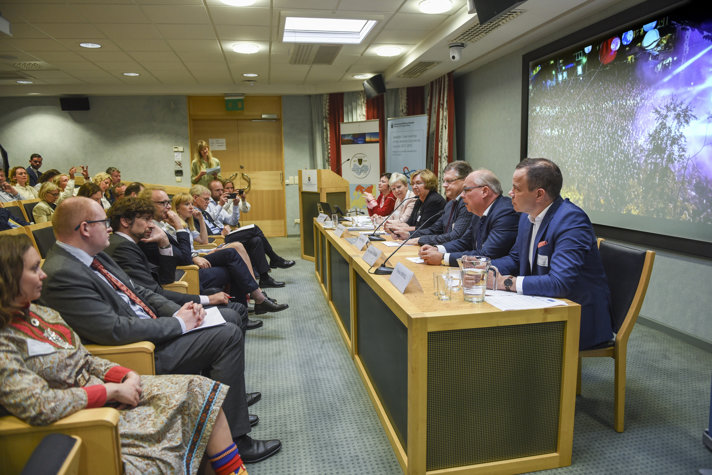
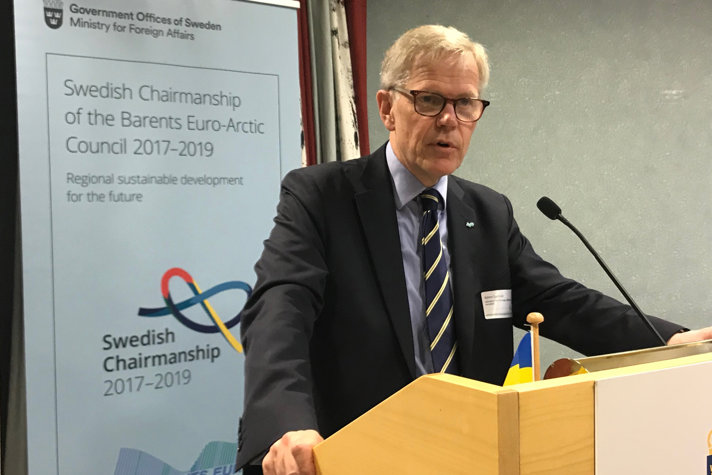
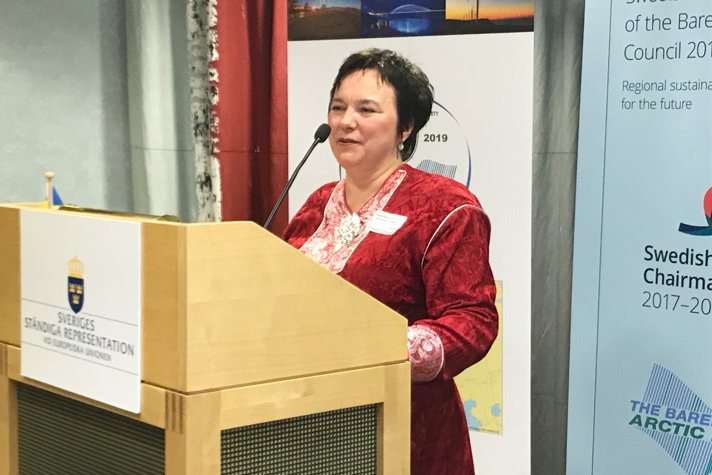
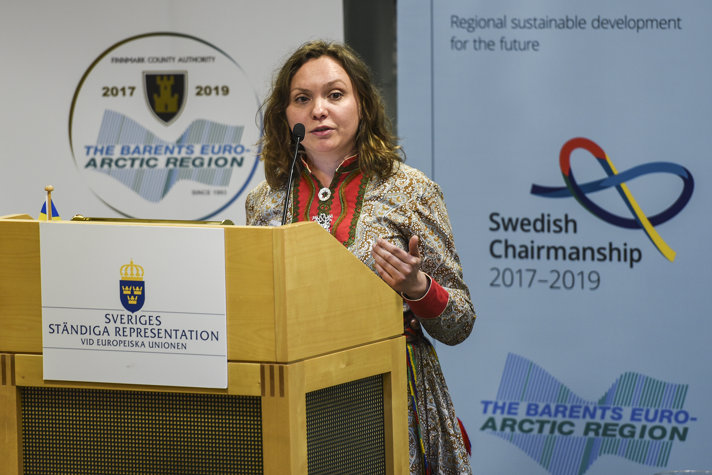
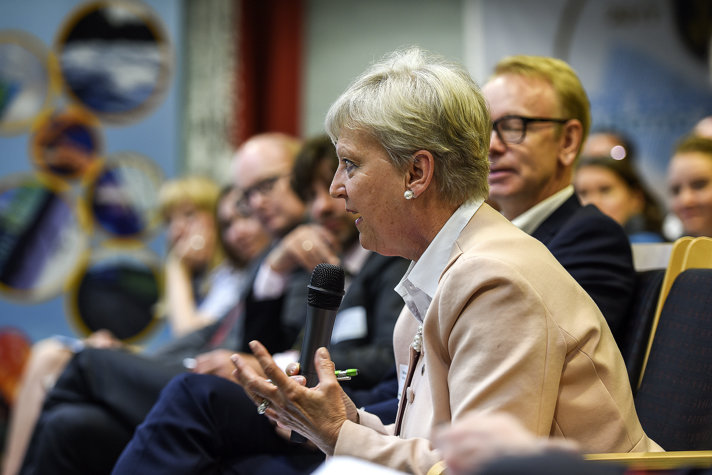
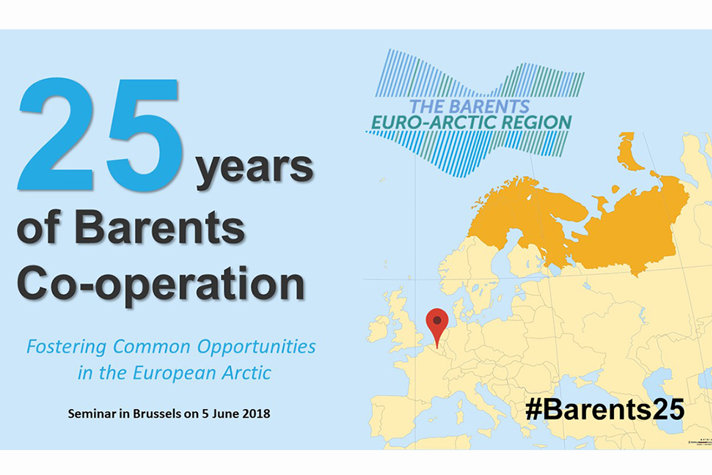
 X
X